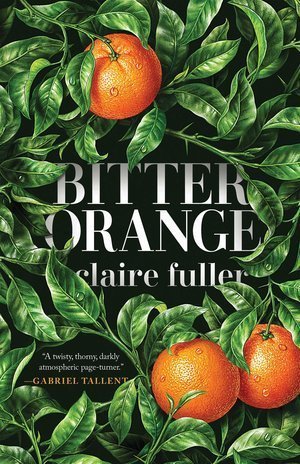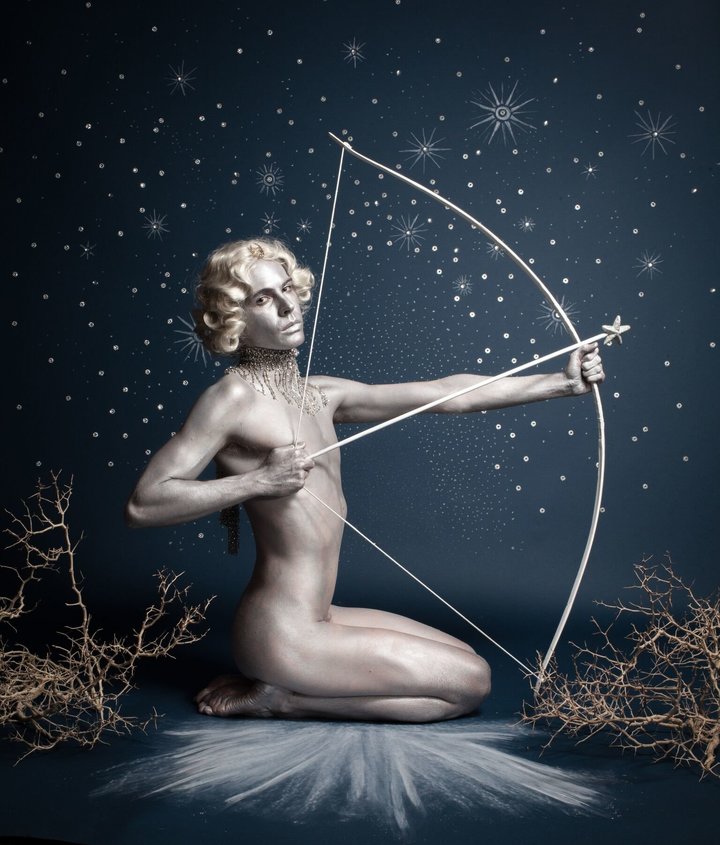Welcome to Good Stuff, HuffPost’s weekly recommendation series devoted to the least bad things on and off the internet.
According to actress Sophie Turner, “Game of Thrones” is using “drone killer” technology (typically only used by police) to bring down the drones fans are using to capture potential spoilers for Season 8.
The contraptions supposedly emit an invisible field that disables the drones that come in contact with it. But in my head, all I see is the Night King throwing spears like he’s got the arm of Henry Rowengartner in “Rookie of the Year” and then resurrecting his victims as ice drones. ― Bill Bradley
Movies About How Much Middle School F**king Blows
Somewhat accidentally, I found myself watching two movies over the last week about middle school ― Bo Burnham’s “Eighth Grade,” which follows a young girl who is trying to navigate our Extremely Online contemporary world, and Jonah Hill’s forthcoming “Mid90s,” about a young boy in the ― well, in the mid-1990s who hopes to find acceptance among a group of skateboarders, each of them troubled like him. The movies are not two sides of the same coin, but they do share similarities. Namely, both of the protagonists here are painfully shy. Every day for Stevie and Kayla is a metaphorical minefield that must be crossed in the search for social acceptance.
Watching both films, I wanted to reach through the screen to give the protagonists a huge hug ― to tell them that it will all get better soon enough. Entering middle school proved to be extremely difficult for me as well, and I saw myself in both of them, but especially in Stevie. Hill later told me that, in fact, he had set his film around the exact middle school I attended, which, fun piece of trivia: also served as the basis of the film “Thirteen.” I, too, a short and awkward kid, went almost silent in sixth grade, a performance I followed up growing nearly a foot, throwing on some acne and slicking back my hair in a way I only retroactively realized wasn’t working, even in its time and place. There is no moral here. All I can say is this: Middle school fucking blows. Just get out alive and move on. ― Maxwell Strachan
A Perfect Fall Novel

Tin House Books
Claire Fuller’s latest novel, Bitter Orange, which came out this week, isn’t set in the autumn or about the autumn, but it feels like a perfect fall novel: moody and dark, suffused with uneasy nostalgia for a golden era that still seems crisp and close in the rearview mirror. Narrator Frances Jellico, on her deathbed, is remembering her first summer of true freedom and companionship: In 1969, shortly after the death of her controlling invalid mother, she moves into the attic of a crumbling English manor to compile a report on its gardens for a new buyer. A younger married couple, Peter and Cara, are also living there to complete work for the owner. Frances is bewitched by their glamor and sensual lifestyle (lots of cigarettes, red wine and lemon pasta), and though she feels awkward and frumpy in comparison, they’re eager to befriend her as well. She’s enraptured by charismatic, flighty Cara, who soon proves full of stories that may or may not be true, but her feelings for Peter grow still deeper.
This tenuous triangle at first allows them to spin off into their own idyllic world, in which time seems suspended and the demands of reality immaterial, but soon the center fails to hold. Fuller slowly unfolds the tragic mystery that, we learn early on, has left Frances shattered with guilt years later. Bitter Orange should be read with a hot toddy and a plate of apple cider doughnuts under a cozy blanket: my recommendation for a perfect October evening. ― Claire Fallon
Viola Davis As The Ringleader Of Steve McQueen’s Arthouse Action Movie
In a week filled with anger and despair, it was especially cathartic to catch an advance screening of “Widows,” Steve McQueen’s arthouse action movie out next month, starring a murderers’ row of badass women (pun definitely intended), with Viola Davis as their ringleader.
There’s so much to say about it, how the twists and turns will leave you frazzled, how it proves that being arthouse and commercial are not mutually exclusive, how you absolutely must see this on a giant screen with a giant crowd. It’s one of those movies that I truly cannot wait for more people to discover and then mull over every detail.
I couldn’t help but marvel at how remarkable it felt to watch a big Hollywood heist movie primarily anchored by women of color, playing complicated, flawed, and sometimes inscrutable women. Hopefully, there will be a day when a movie like this doesn’t feel so radical. — Marina Fang
The Mean Sentences In The Patrick Melrose Novels
I am very late to Edward St. Aubyn’s Patrick Melrose quintet, the caustic autobiographical novels about upper-class rot that were recently Cumberbatched into Quality Television. “Never Mind,” the first of the bunch, won me over with its sentences, the way they seem to be situated just on the clear side of a hangover, full of an aching dawn-lit wisdom. St. Aubyn writes wonderfully about assholes, taking an almost taxonomic care to distinguish between the bores, the boors, the perverts, the sick bastards and the sadistic motherfuckers. He doesn’t describe the hideous rich so much as stick a display pin through their thoraxes.
“Like many flatterers, he was not aware that he irritated the people he flattered… A little Indian guy being sneered at by monsters of English privilege would normally have unleashed the full weight of Anne’s loyalty to underdogs, but this time it was wiped out by Vijay’s enormous desire to be a monster of English privilege himself.”
Perfect, down to the careful balancing of that last sentence. St. Aubyn writes in the fizzy aphoristic style of social satire, but there’s real disgust giving moral ballast to the apercus. “He was just one of those Englishmen who was always saying silly things to sound less pompous, and pompous things to sound less silly.” All I want these days out of any book or movie or TV show or really anything at all is people being articulate about the monsters. ― Tommy Craggs
A Celestial Celebration Of Gender Fluidity

Michelle Alexis Newman
My dear and gifted friend Spencer Olson is absolutely divine in the new photography book “Greek to Me,” shot by Michelle Alexis Newman. A celestial celebration of gender fluidity and creative play, the book features Olson embodying different mythic gods and goddesses, using costumes and sets he sourced from thrift stores and designed himself. As Artemis, goddess of the hunt, Olson dons only metallic, silver body paint and a choker dripping with pearls. Perched on his heels, he arches his back while practicing archery before a star-saturated backdrop. Portraying Aphrodite, Olson rocks a crisp, white pantsuit that would make HRC shake, a Rapunzel-esque blonde wig, and a row of heart-shaped antennae.
He strikes a pose before a handmade, oversized seashell recalling Botticelli’s depiction of Venus, Aphrodite’s Roman counterpart. For his Hestia look, Olson honors the goddess of the hearth with a mangey white wig, pomegranate crown and a bit of face soot for good measure. His bedraggled, business crone vibe would be very at home in the “Suspiria” remake. Olson, a beautiful, hairless god of a man, is the perfect human canvas and becomes utterly unrecognizable in each opulent ensemble. Even Raphael didn’t make these heavenly celebs look so good. ― Priscilla Frank
Young Thug’s “Super Geeked” Rendition Of “Rocket Man”
Y’all have heard “Rocket Man” by Elton John, right? It’s a solid song, iconic, etc. But have you ever heard it merged with a trap beat and then listened to Young Thug sing/croon/rap over it? I’m sure you haven’t — at least not yet. I’m here to change the fuck out of that and TO TELL YOU THAT “HIGH,” YOUNG THUG’S “SUPER GEEKED” RENDITION OF “ROCKET MAN,” IS MUCH BETTER THAN THE ORIGINAL OR ANYTHING YOUR ASS HAS EVER HEARD BEFORE.
Sorry for yelling at you. I’m just really passionate about this majestic piece of music. John’s original is about being famous and trying to stay down to earth — and, let’s be real, it’s probably about psychedelic drug use too. But Thugger is leaning right on into the rockstar persona. He raps about the high he experiences from life and drugs. He’s laying out his escapades with women, broken relationships, cars, jewelry and other facets of his lavish lifestyle.
I stumble upon a mil’ (yeah) / I stumble upon a million five / I spent a fortune all on double seals / If I tell you the numbers you’ll probably cry (And I’m gonna be-) / If I tell you you fake then you’ll probably die. Fuck, that shit slaps. These days if he say that he hit then he probably lyin’ / If you say you got wings and some fish then you probably fried / Got my karats out of Bonnie & Clyde/ And I’m gonna be. My bad, y’all.
Anyway, “High” slows down the beat of John’s original and makes it far more complex. When you listen to it, you feel as if you’re moving through your own haze. Life slows down a bit, you feel thrown into the music. It becomes a part of you. You can feel Thug’s passion, the depths of his soul. That man was moved when he went into the booth to record this, and as a result, he has moved me. And when Thug incorporates John onto the chorus, it sounds less like a folk song and more like a ballad. It’s like if Beyoncé remade a Dolly Parton song. Or if Adele covered “Dreams.” You feel me? Whatever, I’m gonna listen to “High” again. ― Julia Craven
Eric Church Pushing Against Country Music’s Bounds
I’m a big fan of Eric Church’s new album, “Desperate Man,” a solid 11-track work that came out of what Church readily admits was the toughest year of his life. Church was hospitalized with a blood clot that almost killed him, then one of his first returns to stage came at the Las Vegas music festival that became the scene of the deadliest mass shooting in American history. The result is maybe the most emotional and unconventional album he’s produced yet.
Church’s reputation is as country’s rock-n-roll outlaw ― his last major work was titled “The Outsiders” ― but “Desperate Man” leaves a lot of that arena-rocking nature behind in search of something deeper, not just in his life but his music too. There are still odes to the honky tonk and his blue-collar, working man politics. But all of it is searching for a little more, too, from the world and from himself. Church has been less shy about his liberal leanings over the last year or two, and he made waves for calling for “sensible” gun control in the wake of Vegas. Now, he’s produced an album that’s less reserved and stuck inside the assuredly comfortable slice of country music he’d already carved out for himself on previous projects. Make no mistake: “Desperate Man” is still a country album, and still an Eric Church country album. But like so many others in country nowadays, Church is pushing the boundaries of what the genre can be, and what he can be within it, too. ― Travis Waldron
Lady Voldemort
Happy weekend! ― Katherine Brooks



















![[Book Review] The Blade Itself (The First Law Trilogy) by Joe Abercrombie](https://bendthekneegot.com/wp-content/uploads/2018/01/1516047103_maxresdefault-218x150.jpg)
















